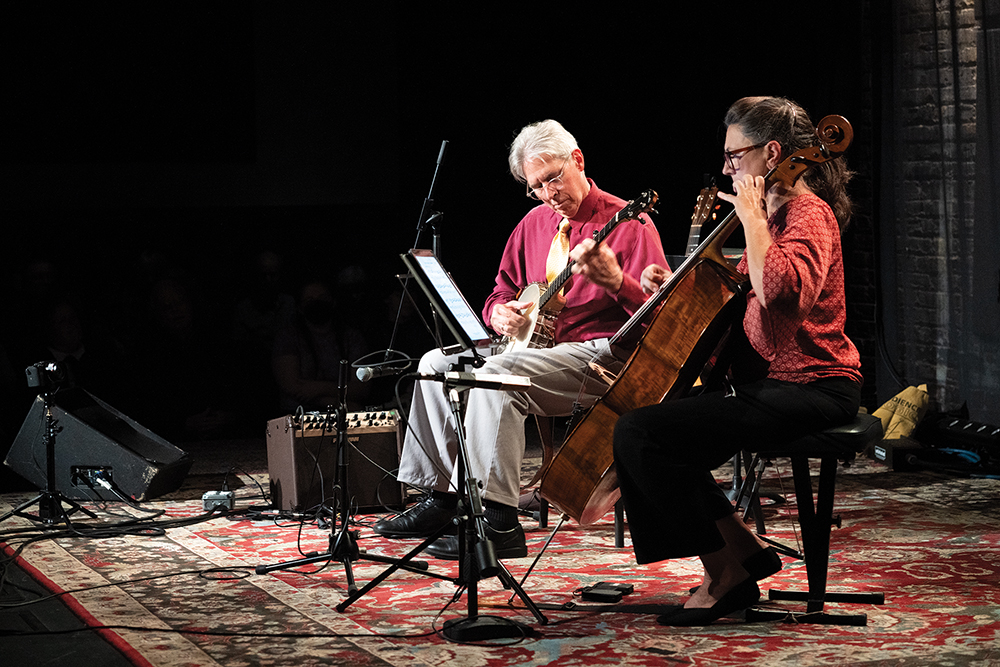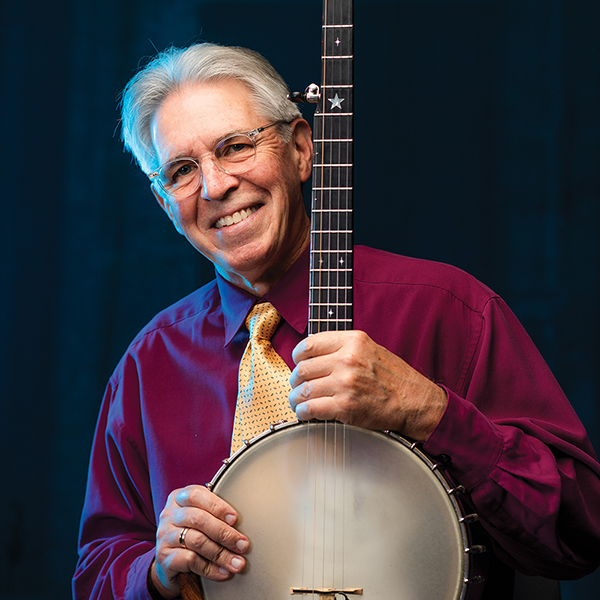Renaissance Man
Michael J. Miles, ’76 LAS, is a musician, teacher, poet, historian and banjo player, not necessarily in that order. While many virtuoso banjoists like Miles have brought the instrument once relegated to Minstrel shows into musical genres beyond traditional bluegrass, Miles saw it was possible to stretch its strings back five centuries to play the music of Johann Sebastian Bach. He first did it in a 1997 recording and does it again on his latest album, American Bach Revisited, on which he performs Bach’s Cello Suites, along with an original composition with five movements named for the streets of Chicago, his hometown.
A self-taught musician who started playing guitar at age 12, Miles recalls a “seminal moment” that came from a most unlikely source. During his junior year abroad at the University of Lancaster in England, he began playing “a banjo that someone found” and took part in a theater troupe that toured small towns in France. While troupe members were playing songs around a campfire one evening, a stranger with a banjo joined in and introduced Miles to the “clawhammer” technique for striking the strings with a downward motion, an approach that Miles would go on to perfect.
“There’s baggage that comes with the banjo that you have to work around,” he says. “I find it hard to believe that I was ever drawn to it. The tone is twangy and abrasive. People hear it and think of The Beverly Hillbillies. One of the things I worked hard on is trying to find a tonality that is more pleasing.”
In a career spanning nearly 50 years, Miles has performed at some of the world’s most renowned venues, including the Kennedy Center, the Smithsonian Institution and the Royal Opera Theatre in Marrakesh, Morocco. He has written and directed more than a dozen musical documentaries for the stage, published 14 instructional books and released eight albums. When folk music legend Pete Seeger first heard Miles’ music, he said, “This is one of the most beautiful recordings I’ve heard in all my years…. It is enough to make me want to learn the banjo all over again.”
“Through music, you can address issues of the heart. It can save lives.” —Michael J. Miles, ’76 LAS

Of the banjo, Michael J. Miles says, “The tone is twangy and abrasive. I [work] hard …to find a tonality that is more pleasing.” (Image by Lenny Gilmore)
Others offer enthusiasm as well. The Chicago Sun-Times’ Hedy Weiss called Miles’ work “an exhilarating, musical and multi-dimensional journey,” noting that it offered “a provocative political and social history of America.”
Many of Miles’ recordings and performances incorporate politics, history and social commentary, blended into a wide range of musical genres. His album, Mississippi River Suite, released in 2020, addresses the nation’s political divide, using the river that divides the country as a metaphor. Chris Kennedy, professor emeritus of communication at Western Wyoming College, described it as “an evocative, haunting, beautiful, timely epic work. Miles shows how music can speak to these times we are living in.”
Miles says he derives as much satisfaction from teaching as he does from performing and composing. Whether introducing kindergarten students to their first musical experience or conducting advanced classes for professional musicians and music teachers, he keeps one essential goal in mind: “To get at the desire that is in all human beings to express themselves. Through music, you can address issues of the heart. It can save lives.”


